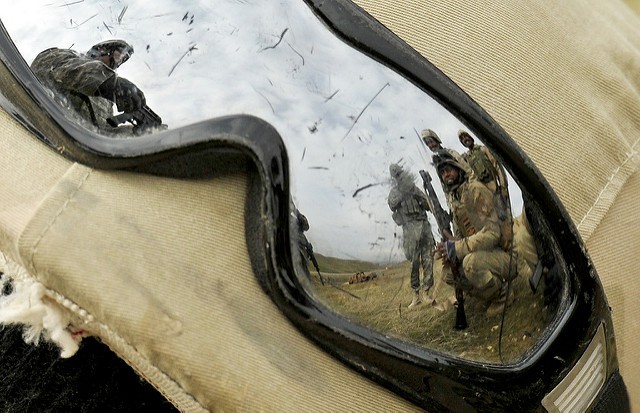Today modern life is inextricably connected with computer technology. This technology has already changed the manner in which people live, work, and spend their spare time. According to one woman’s testimony (Santa Pit): „In the virtual world I am a fully successful woman. I drive a new Cabriolet, people recognize me everywhere I go, and I have a lot of money. When I log off from the game, I come back to real life where I have to take care of three children, where I need to clean my house and… repair my car. My neighbors don’t notice me and they think that I am a housewife. This is why I love my… Second Life.”
Virtual reality, for many people, is commonplace. People choose virtual games instead of meetings with real friends. And their virtual world slowly becomes their primary reality. Gamers so strongly identify with their avatars that they can no longer live without them. The imaginary and unreal world seems better than the real world. Many people want to live in a world of magic – a fabulous and mysterious world. We can see this in the newest game Uncharted 2: Among Thieves where, „fortune hunter Nathan Drake is lured back into the treacherous world of thieves and mercenary treasure seekers. Embark on a journey to discover the real truth behind the lost fleet of Marco Polo and the legendary Himalayan valley of Shambhala.”
The worlds of computer gaming is an anonymous entertainment of colors, sounds and excitements. They have different levels of action and desirability. And they present us with rich three-dimensional images. For example, Uncharted 2: Among Thieves has graphics that resemble an action adventure movie. And the adventures that entice gamers in this game are as expansive as the imaginations of the programmers. In these virtual worlds, gamers realize their potential, they exercise freedom and they pursue a “happiness” that might escape them in the real world.
Paradoxically, the most popular games are based on what we would normally not desire in the real world. Many games, for example, are opportunities to unleash aggression through violence. Moreover, many of the „story boards” romanticize vigilante justice, violence, and actions outside of our moral codes. The games appeal tour basest instincts, where values are relative to „winning” or completing quests. One wonders if values like kindness, compassion, and mutual aid have a place in these games. Worse than the moral void, however, is the inclusion of sadistic murders and psychopathic criminals in computer games aimed at children or impressionable young adults. In Call of Duty: Modern Warfare 2 – one of the most violent and controversial games ever made – the player is asked to engage in a terrorist attack on a Russian airport killing hundreds of civilians. It is disturbing to think that we equate planning acts of terrorism with „enjoyable game play.”
The forms of destruction and force simulated in video games vary in intensity according to a game’s realism. Very brutal games are „doom games”. They are shooting or fighting games where the goal is destruction or annihilation. One goal of video gaming is the killing or the mutilating of the „virtual enemy” through the use of different weapons (knife, circular saw etc.) to accomplish the task.
I searched Best Buy website and examined some of other popular PC games. Very few didn’t contain violence; indeed, many contained acts of violence, destruction and aggression necessary to destroy the enemy. Consider this box description: „Master the necromantic powers of the Death Knight – World of Warcraft’s first Hero Class. Create a new Death Knight character with a starting level of 55 and break the chains of the Lich King to forge your own destiny. Power your way through new quests and dangerous as you seize ever greater abilities.” The use of force, acquiring greater strength, and powerful acts of aggression are necessary to attain the game’s goal: destruction of the enemy.
RPG games (role-playing games) are based on actions embedded in an incredibly cruel virtual reality containing complex strategies of warfare and fighting. If the game’s story lines are inscribed in the real world, it is often a dimension of it that is very dangerous and violent. Often, players are, „dragged into a criminal underworld by a series of shysters, thieves and sociopaths, [and] they discover that the reality is very different from the dream. In a city that worships money and status, life is heaven for those who prosper and a living nightmare for those who don’t” (Grand Theft Auto IV).
Computer adventure simultaneously captivate and terrorize as players materialize into thieves, terrorists, gangsters engaged in innumerable murders and acts of destruction. And it is only by acting within these roles that players advance to successfully accomplishing the game’s final goals. For example, „In the Godfather II, you must think and act like a true Don. (…) Coordinate your arsenal of fronts and rackets to keep the money flowing in and the reins of power firmly in your grasp. Make the decisions that will determine your fate and that of the Family, and relive legendary moments from the feature film in a gripping open world inspired by the movie. Do whatever you need to do to stay on top, and remember, no matter what happens – it’s only business.” Unlike real life, if the player doesn’t pass „the exam”, he/she can always restart the game.
Lastly, music is essential to PC gaming. Suggestive sound effects intensifies a player’s emotional reaction while gaming, and can contribute to the player entering more fully into his/her character‘s psychological makeup.
Participation in virtual gaming is predicated on real life experiences and actions, and, more often than not, the most horrific of those real life experiences. For some, the distinction between virtual and real worlds becomes blurred to such an extent that destructive behaviors allowed in the gaming world are brought into real life. Games „copy” our everyday real life experiences: sports, (for example: Fight Night: Round 4), human relations (for example: The Sims 2, Apartment Life), soldier combat (for example: Call of Duty: World at War) or adventures (Tomb Raider: Underworld).
For many impressionable children and youth, computer games are an introduction to a „vigilante” universe where people use guns and other weapons to fight „in the name of good”. Unfortunately, some of them live by this code in „real life”. When resolving problems in real life and dealing with relational conflict, they view firearms as the only viable solution. The options that saved them in their virtual world, what gained them their freedom and advanced them towards their ultimate goal, is what „destroys” them in real life.
Should we restrict or censor violent games? Or is this just much ado about nothing?











